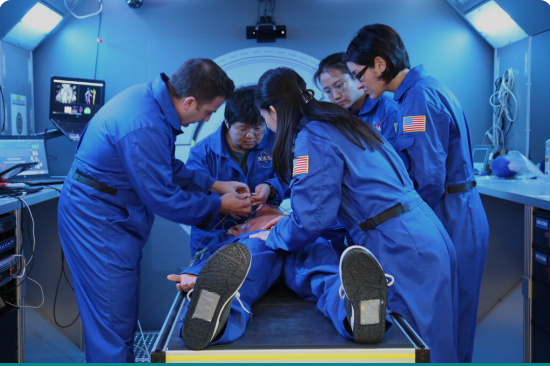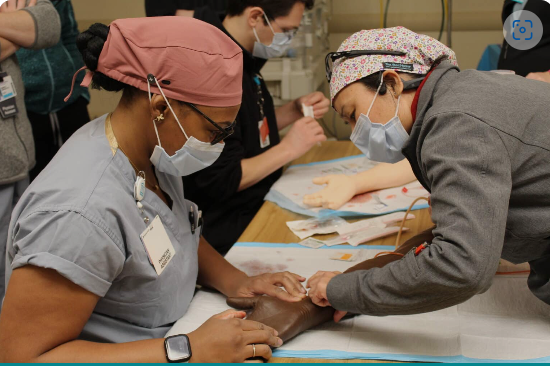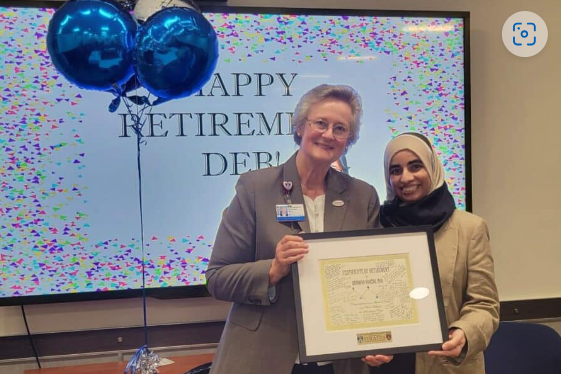9F, Zhongrui Jumei Building, 68 Jiuzhang Road, Suzhou Industrial Park, Jiangsu Province
Company News
Harvard Emergency Simulation Medicine Training Program
Emergency Medicine Simulation Fellow
STRATUS offers a two-year emergency medicine internship to physicians who have completed an ACGME-accredited emergency medicine residency and become board-eligible/board-certified. Our fellows are certified by the Society for Academic Emergency Medicine (SAEM) and the Society for Simulation in Healthcare (SSH).
In this hybrid program, fellows will learn and practice various aspects of simulation education and research and play a primary role in the STRATUS Center for Medical Simulation. Fellows will also complete a Master of Science in Health Professions Education at the MGH Institute of Health Professions and will be appointed as postdoctoral fellows at Brigham and Women's Hospital and Harvard Medical School.
Registration deadline: October 23, 2023
Project start date: July 1, 2024
Researcher activities
Throughout the fellowship, the fellow will be actively involved in all STRATUS educational and business activities, including:
Develop, implement, report and evaluate simulation-based courses
Proficient in simulation areas, including design and operations
Build analytical skills and learn how to become an independent researcher
Design, develop and execute your own simulation program through your graduation project
Attend STRATUS team meetings and research

Tutoring system
STRATUS recognizes that fellows are trainees working in an apprenticeship model in preparation for entry into a career as a clinician-educator. STRATUS senior staff work closely with fellows to identify specific goals for professional advancement and establish a mentoring team. Fellows are also expected to function responsibly and autonomously within the complex environments of STRATUS and Harvard Medical School and its affiliated institutions.
STRATUS Center
what are we going to do
Provide simulation education and training to undergraduate, graduate, medical, nursing, allied health and other patient-facing clinicians and support staff;
Utilize all modes of simulation, including high-fidelity/scenario-based simulation, screen-based simulation, virtual/extended reality, standardized patient and procedural part task trainers;
Acquire technical and non-technical skills;
Hospital quality and process improvement;
educational assessment;
interprofessional team training;
Education and training
STRATUS education and training can help everyone become a better clinician or patient support provider through our clinical and team training. STRATUS' interdisciplinary center draws on the expertise of Harvard Medical School faculty, nurses, allied health professionals, information technology and simulation experts. Provides training in nearly all specialties using computer-controlled simulation systems, virtual and augmented reality, task trainers, and other state-of-the-art technology. Whether students are clinicians with years of experience or interns just learning the technology, students can develop and enhance their skills in STRATUS through reality-based patient care demonstrations in a variety of simulated environments.
Research
Research is one of the fundamental pillars of the STRATUS Simulation Center. STRATUS is primarily committed to becoming a world leader in the scientific research and application of human factors and cognitive engineering in healthcare. Simulation is one of the innovative methods the STRATUS research team is using to understand and improve human performance in a variety of settings, including emergency medicine, critical care, surgery and space missions. The center's focus is on developing novel tools and technologies to enhance learning, professional skills and patient safety. Human Factors and Cognitive Engineering Laboratory STRATUS's Human Factors and Cognitive Engineering Laboratory, led by Roger Dias, Ph.D., brings together a multidisciplinary team of clinicians, engineers, psychologists, computer scientists, and educators, including Cooperation with many scientists and institutions at home and abroad. STRATUS research projects are funded by NIH (R01), NASA, DoD, NSF, and AHRQ.

Laboratory mission
The core mission of the STRATUS Research Laboratory includes the use of cutting-edge technologies to understand and improve clinician performance, with the ultimate goal of increasing patient safety and improving clinical outcomes.
technology
STRATUS's research laboratories employ advanced technologies including: high-fidelity simulations of artificial intelligence and machine learning, digital biomarkers, wearable sensors, data science and visual analytics, virtual, augmented and mixed reality.

contact us
Jiang Jun13771758095
jjiang@evomt.com
Ji Yuxin 18001541117
yxji@evomt.com
Chen Jiahao 13771954400
jhchen@evomt.com
Han Huimin 19534120331
hmhan@evomt.com
Yuan Zhenjiang 13523487223
zjyuan@evomt.com
Bi Qilin 13875950393
qlbi@evomt.com

